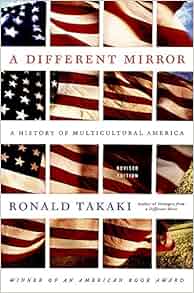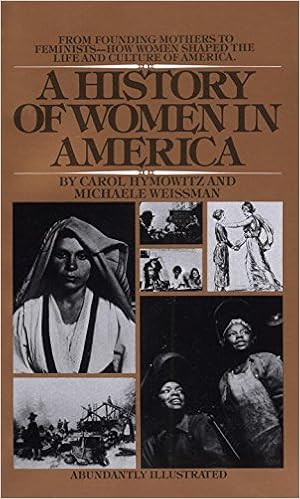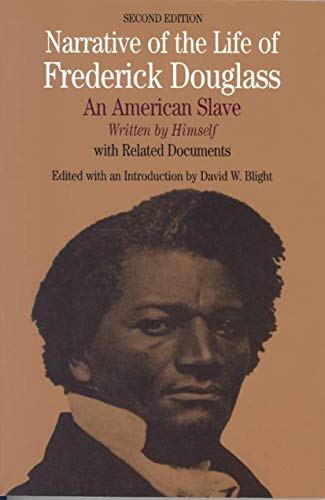Course Syllabus
History 21 Syllabus
Race Ethnicity and Gender in American Culture HISTORY 21
Santa Rosa Junior College Spring 2022
Anne Donegan adonegan@santarosa.edu (Links to an external site.)
Mondays 4:30-6:30
Emeritus Hall 1692
4-5 hours of work will be assigned on Canvas each week
Zoom Office Hours: Mondays 2:30-3:30 and Thursdays 10-11
Link to all of the Monday Office Hours: https://santarosa-edu.zoom.us/j/92037987990
Link to all Thursday Office Hours: https://santarosa-edu.zoom.us/j/91728788585
There will be a waiting room set up, so that students can speak to me privately. If I am meeting with a student, you may be in the waiting room for 5-10 minutes.
Course Description: An examination of the interrelated roles of race, ethnicity and gender in shaping political and cultural institutions in the United States. From pre-Columbian times to the present, the course will explore and analyze the experiences, contributions, and interconnectedness of African, Asian, European, Latino and Native American peoples.
Required Texts: Ronald Takaki, A Different Mirror

Carol Hymowitz & Michaele Weissman, A History of Women in America

Frederick Douglass, Narrative of an American Slave, Bedford St. Martin's edition

Course Outline of Record: https://portal.santarosa.edu/SRWeb/SR_ScheduleOfClasses.aspx
Attendance
Regular class attendance and note taking are expected and recommended. When you are absent, it is very important that you get notes from a classmate.
Course Requirements:
A. Homework: A typical class will be a combination of lecture and discussion, as well as the occasional film. For success in the class, regular attendance and note taking are critical. If you are absent, you must get the notes from another student. Turning in 5-7 pages of homework, being prepared for discussions and/or in class writing or quizzes will be worth 100 points of your final grade.
B. Exams: There will be two examinations. Both exams will be worth 100 points. Tests will be based on all assigned materials and on material presented in class. Each exam will have include an essay and objective questions. The material to be covered on the tests will be discussed prior to each test date. Make up exams are possible only in cases of extreme emergency or serious illness. If you do not notify me prior to the scheduled exam date, an automatic 10 points will be deducted.
C. Analytical Essay: There will be a 4-6 page essay on Frederick Douglass's Narrative worth 100 points.
Classroom Principles:
1. Ask questions if something doesn't make sense.
2. Agree and Disagree with one another with respect. Keep an Open Mind.
3. Be engaged in class. In class, phones should be put away, unless you have an important reason to keep it out. If you need access to your phone during class, talk to me at the start of class. If you use your phone during class without checking with me first, I will ask you to leave the class.
4. Be engaged in class (part 2)! Come to class awake and ready to go! If you fall asleep in class, I will ask you to go home and get some much needed rest.
5. Visit Office Hours. These times are dedicated to students asking questions, about ANYTHING!!!
Extra Credit:
1. You may pass in short essays explaining how an article, TV show, or film relate to a topic discussed in class. The essay should be 1-2 typed pages. Be sure to clearly explain how the event, relates to our class. If applicable, include a copy of the article. Students can earn 0-3 points per essay.
2. There will be also be some extra credit assignments throughout the semester.
No more than 20 extra credit points will be accepted. No extra credit will be accepted after May 9th.
Course Outline
Module 1: 1/24-3/14
Lecture & Discussion Topics Assigned Reading
Cultures Meet: Native Americans, Europeans, and Africans Takaki, Intro and chapters 1-3
Hymowitz and Weissman, chapters 1-2
Embracing Liberty and Contradictions: A New Republic H & W, chapters 3-4, and 6
Takaki, chapter 4
Industrialization and Antebellum Reform. H & W, chapters 5,7, and 8
Takaki, chapter 5-6
2/6 Last Day to Drop w/o a “W”
2/21 No Class: Presidents' Day
3/14 Discuss Douglass
Module 2: 3/14-4/18
Sectional Conflict, Civil War, and Reconstruction H & W, chapter 9
Takaki, chapter 7
Western Expansion & Indian Removal Takaki, chapters 8-11
--Native Americans Targeted, Moved, and Assimilation H & W, chapter 11
--Chinese Immigrants: The Outsiders
--Chinese Exclusion Act
Industrialization & Progressivism H & W, chapter 10, 12-15
--Laissez-Faire, Immigration, Cheap Resources Takaki, chapter 12
--Urban and Rural Americans Organize to Improve Lives
--Middle Class White and Black Women Organize
Imperialism and the 1920s H & W, chapter 16
--Social Darwinism and the "White Man's Burden" Takaki, chapter 13
--The Modern Woman
3/21 No Class, Spring Break
3/28 Douglass Essay Due
4/18 Midterm Exam
Module 3 4/25-5/23
The Depression. The New Deal, and WWII H & W, chapter 17
-Challenging Laissez-Faire and Facism Takaki, chapter 14
-Rosie the Riveters
-Double V Movement
The 1950s H & W, chapter 18
-Consumerism, the Suburbs, and White Flight Takaki, chapter 15
-Civil Rights Movement
Rise of Liberalism and Vietnam H & W, chapter 19
4/24 Last Day to Drop with a W
5/9 Last day for any extra credit
5/23 Exam # 2
Assignments & Examinations may be Subject to Change by the Instructor
Course Summary:
| Date | Details | Due |
|---|---|---|
:max_bytes(150000):strip_icc()/phillis-wheatley-3247510-59c6e8e7845b340011759c50.jpg)